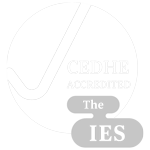
BSc(Hons) Wildlife Ecology and Conservation Science (with Foundation Year)
This course is open for applications
About
Study wildlife from a scientific perspective on this specially-developed degree, created in partnership with Bristol Zoo Project.
Why study wildlife ecology and conservation?
Conserving biodiversity and avoiding the mass extinction of species are huge global challenges.
We need ecologists who can use their skills and scientific knowledge to help tackle these issues, and explore new and novel approaches to conserving wildlife.
By looking at the nature of global biodiversity, and the effects of habitat loss and climate change, you can equip yourself with the knowledge and tools you need to make a difference in this field.
Why UWE Bristol?
BSc(Hons) Wildlife Ecology and Conservation Science explores wildlife conservation issues at local, national and global levels. Created in partnership with Bristol Zoo Project, it gives you unique access to the zoo's expertise.
Mixing theory with practice, you'll delve into the relationship between wildlife and society, and consider the impact of human activities on the living world.
Deepen your knowledge of conservation by carrying out work in natural habitats close to Bristol. Past locations have included the Severn Estuary, the Cotswolds woodlands and grasslands, the Somerset Levels and Avon Gorge.
Tap into our many links with local conservation organisations, and go on placements, volunteering and where possible, field-based work and residential trips in the UK and overseas.
Choose our sandwich course option to spend your third year on a work placement in this country, Europe or further afield, applying your knowledge to topical conservation issues.
Explore the steps that can be taken to alleviate biodiversity decline, and get the strong foundation you need for a career in conservation.
We are pleased to inform you that Bristol Zoological Society plans to expand as they move to their Bristol Zoo Project location in the next few years. This relocation will enable their team to develop future facing wildlife conservation projects and education facilities. This puts UWE Bristol in the unique position of being co-creators of this state-of-the-art facility, providing exciting new opportunities for you as a wildlife conservation student.
Where can it take me?
You'll be well prepared to go into a wide range of jobs. You could work in national and international wildlife conservation, conservation consultancy, media and wildlife film-making, wildlife and enterprise, or wildlife conservation research.
As a science graduate, your skills will be highly valued, and you could go into a range of non-science graduate positions.
Watch: Welcome to the School of Applied Sciences at UWE Bristol
Entry
Typical offers
You will need to meet the following Level 2 requirements:
- GCSE: Grade C/4 or above in English, Mathematics and Double Science, or equivalent.
In addition to the above Level 2 qualifications, you'll need to achieve the published tariff points from your Level 3 studies prior to entry. Below is an indicative list of the main qualification types. However, we will consider any Level 3 qualifications towards meeting our entry requirements.
- Tariff points: 56
- Contextual tariff: See our contextual offers page.
- English Language Requirement:
International and EU applicants are required to have a minimum overall IELTS (Academic) score of 6.0 with 5.5 in each component (or approved equivalent*).
*The University accepts a large number of UK and International Qualifications in place of IELTS. You can find details of acceptable tests and the required grades you will need in our English Language section. Please visit our English language requirements page.
- A-level subjects: No specific subjects required.
- EDEXCEL (BTEC) Diploma: No specific subjects required.
- Access: No specific subjects required.
- Baccalaureate IB: No specific subjects required. We accept the IB Career-related Programme in conjunction with other Level 3 qualifications.
- Irish Highers: No specific subjects required.
- Welsh Baccalaureate: We accept tariff points achieved from the Advanced Skills Baccalaureate Wales in conjunction with other Level 3 qualifications.
- Cambridge Technical: No specific subjects required.
- T Levels: No specific subjects required.
Entry requirements
If you exceed the entry requirements you may be eligible for BSc(Hons) Wildlife Ecology and Conservation Science.
International applicants
If you are an international student your recommended route of study for this degree is through our International College, which upon successful completion to the required level and with good attendance, guarantees entry to year one of the degree.
Read more about entry requirements.
How to apply
Read more about undergraduate applications.
Read more about international applications and key international deadline dates.
For further information
- Email:
UK applicants
Admissions@uwe.ac.ukInternational/EU applicants
International@uwe.ac.uk - Telephone:
UK applicants
+44 (0)117 32 83333International/EU applicants
+44 (0)117 32 86644
Structure
Content
The optional modules listed are those that are most likely to be available, but they may be subject to change.
Year zero (foundation year)
You'll study:
- Biology in Practice
- Chemistry in Practice
- Skills for Science
- Investigating and Communicating Science.
You normally need to pass your foundation year before going into year one.
Year one
You'll study:
- Life on Earth
- The Earth
- Field Skills (includes residential field trip, where possible)
- Wildlife and Society.
Year two
You'll study:
- Environmental and Field Techniques (includes residential trip, where possible)
- Conservation in Practice
- Ecology and Ecosystem Protection.
Plus two optional modules from:
- Plant Growth and Survival
- The Microbial World
- Wildlife Ecology.
Placement year (if applicable)
If you study on the four year (sandwich) course, you'll spend a year away from the University on a work placement after Year two.
You'll complete the Professional Practice in Applied Sciences module.
See the placements and fees sections for more information.
Final year
You'll study:
- Research Dissertation Project
- Contemporary Conservation Science.
Plus optional modules (the number depending on credit requirements) * from:
- Environmental and Ecological Consultancy
- Environmental Microbiology
- Global Forest Systems
- Marine Ecosystems
- Primate Ecology and Conservation
- Professional Practice in Applied Sciences*
- Remote Sensing and Geographical Information Systems (GIS)
- Science Communication
- Sustainable Food Production
- Expedition to a Biodiversity Hotspot
- Wildlife, Film and Media.
*If you complete the sandwich placement year you'll study three of these modules. If you don't complete it you'll study four of them.
**If you complete the Sandwich placement year, you'll have already studied this module, so it won't be available for the final year.
The University continually enhances our offer by responding to feedback from our students and other stakeholders, ensuring the curriculum is kept up to date and our graduates are equipped with the knowledge and skills they need for the real world. This may result in changes to the course. If changes to your course are approved, we'll inform you.
Learning and Teaching
The course offers a wide-ranging curriculum taught through lectures, seminars and tutorials, complemented by laboratory investigations, case studies, workshops, work-based experiences and where possible, fieldwork.
During the second and third years of your degree, some of your study time will take place at Bristol Zoo Project, where you'll learn about live conservation projects. The zoo offers an exceptional learning facility for investigating wildlife conservation, including ex-situ conservation, animal behaviour and conservation communication strategies.
Hone and develop your skills with organisations tackling a broad variety of conservation issues, from the local to the global.
Learn about research methods, field surveys, data analysis and interpretation, essential to the scientific study of wildlife.
Use our advanced film-making equipment and expertise to produce your own conservation film.
Put the theory into practice through regular field work opportunities.
Receive one-to-one guidance and feedback throughout from our experienced academic and personal tutors.
See our full glossary of learning and teaching terms.
Assessment
We use different assessments to support different learning styles, and the wide range of concepts, knowledge and skills we want you to develop.
Our assessment strategy is reviewed regularly, and you may be assessed with unseen, open-book and practical exams, essays, practical reports, individual and group projects, oral and visual presentations, case study analysis, taxonomic collections and problem-solving exercises.
We also use blogs, online portfolios and web page design, to help you develop sought-after e-communication skills.
The placement year is assessed on a reflective portfolio, work supervisor's report and oral presentation.
The first year assessments don't contribute to your final degree mark.
Fees
Full-time; Sandwich course
Indicative Additional Costs
Supplementary fee information
The UK Government has announced that the Undergraduate tuition fee cap for home students (including offshore) will increase every year in line with inflation. Legislation still needs to be passed for this increase to happen so the above home and offshore fees for 2026/27 are likely to increase should legislation be passed. Any tuition fee which is impacted by this change will be updated following Government approval.
Find out more about the new higher education reforms.
Your overall entitlement to funding is based on how long the course is that you're registered on. Standard funding is allocated based on the standard number of years that your course lasts, plus one additional year.
You'll apply for funding each year that you study and Student Finance will take into account how long the course is in each year that you apply. So if you register for the five year course and then transfer to the four year course, the number of years you can apply for funding will change. Student Finance will reassess your funding based on how many years you have been in study, not just those years for which you received student finance.
Always seek advice before taking any action that may have implications for your funding.
Additional costs
Additional costs are for items you could need during your studies that aren't covered by the standard tuition fee. These could be materials, textbooks, travel, clothing, software or printing.
Features
Professional accreditation
This course is accredited by the Community for Environmental Disciplines in Higher Education (CEDHE), the education committee of the Institution of Environmental Sciences (IES).
CEDHE is the collective voice of the environmental sciences academic community and serves to enhance the quality of environmental education worldwide.
A course accredited by CEDHE is assured to meet high standards, contain a strong component of practical, field and theoretical activities, and has excellent opportunities for training, work experience and links to the professional environmental sector.
Students enrolled on CEDHE-accredited courses can apply for free Student Membership of the IES and for a fast-track route to membership once they graduate.
This course is aligned with the academic requirements for Registered Environmental Practitioner (REnvP) and starts graduates on a route towards becoming a Chartered Environmentalist (CEnv) or Chartered Scientist (CSci).
Placements
Students who go on work experience tend to graduate with better degrees. Experience also hones your skills, industry knowledge and professional network, making you a sought after graduate.
You'll have opportunities to do placements, internships and volunteering.
If you choose the five year (sandwich) course, you'll spend a year away from the University on a work or study placement after Year two.
Students have worked with organisations including the Royal Society for the Protection of Birds (RSPB), Plymouth Marine Laboratory (PML), Centre for Ecology and Hydrology, Bristol Natural History Consortium, National Trust, ARKive and Kew Gardens.
You could also get overseas experience. Students have worked on the Damara terns in Namibia, and with elephants in Africa, kiwis in New Zealand and gorillas in Cameroon.
You'll get help to find a placement and support throughout from staff within the School and our award-winning careers service.
Fieldwork
Spend a significant part of your time working in the field and getting to know the spectacular landscapes around Bristol.
There are two residential trips including a trip to Dartmoor during Year one, an optional final-year trip to Cornwall, and the chance to go on a choice of research expeditions which includes a trip to the threatened forests of Madagascar where you'll study lemur behaviour, chameleons and human-wildlife interactions.
You'll investigate a range of natural and semi-natural habitats, and develop the practical skills to study wildlife and conservation science in the field.
Find out about a field trip in Cornwall from our students studying Marine Ecosystems, and read about a recent field trip to a tropical island near Cuba to study the ecosystem.
Study facilities
Although you'll not be directly handing wildlife, this course offers a unique partnership with Bristol Zoo Project, giving you access to the zoo's expertise.
With access to well-equipped science laboratories, a glasshouse and a dedicated field centre at the University, you'll be supported and mentored by a team of specialists at the forefront of their profession.
You'll get to use extensive equipment for fieldwork and field-based laboratory work at our field centres.
Take a virtual tour of the Environmental Science facilities and see what's on offer here for you.
Personalised virtual tour
There's no need to visit us in person to explore our facilities and campuses. Take a personalised virtual tour and discover it all for yourself from wherever you are.
Take a virtual tourCareers
Careers / Further study
By the end of the course, you'll be well set up for working with national and international conservation organisations, or ecological consultants such as Wildlife Trusts, The Woodland Trust and other non-government organisations (NGOs).
Practical experience in plant and animal survey work, competency at mapping (GIS), and knowledge of monitoring protected species such as great crested newts, reptiles, bats, badgers or water voles are especially valuable in finding rewarding jobs.
If you're interested in conservation education, there are opportunities with the Field Studies Council and other educational organisations.
There are also many options for postgraduate study and research degrees. You could specialise in an area such as wildlife film-making, science communication or environmental consultancy.
As a graduate, you'll be eligible to apply for a range of postgraduate courses at UWE Bristol, which will give you advanced knowledge and support your career development. These include MSc Forensic Science, MRes Applied Sciences, MSc Sustainable Food Systems, MSc Science Communication, MSc Applied Wildlife Conservation and MSc Conservation Leadership.
Get inspired
Our award-winning careers service will develop your employment potential through career coaching and find you graduate jobs, placements and global opportunities.
We can also help find local volunteering and community opportunities, provide support for entrepreneurial activity and get you access to employer events.
Visit our employability pages to learn more about careers, employers and what our students are doing six months after graduating.
Life

Accommodation
An excellent range of options for all of the Bristol campuses and the city centre.

Bristol
A stunning city for student living with all the qualities to make you want to stay.

Sports, societies and activities
There is more to your experience here than study. Choose to make the most of it and try new things.

Health and Wellbeing
We provide support in the way you need it.

Campus and facilities
Discover our campuses and the wealth of facilities provided for our students.


